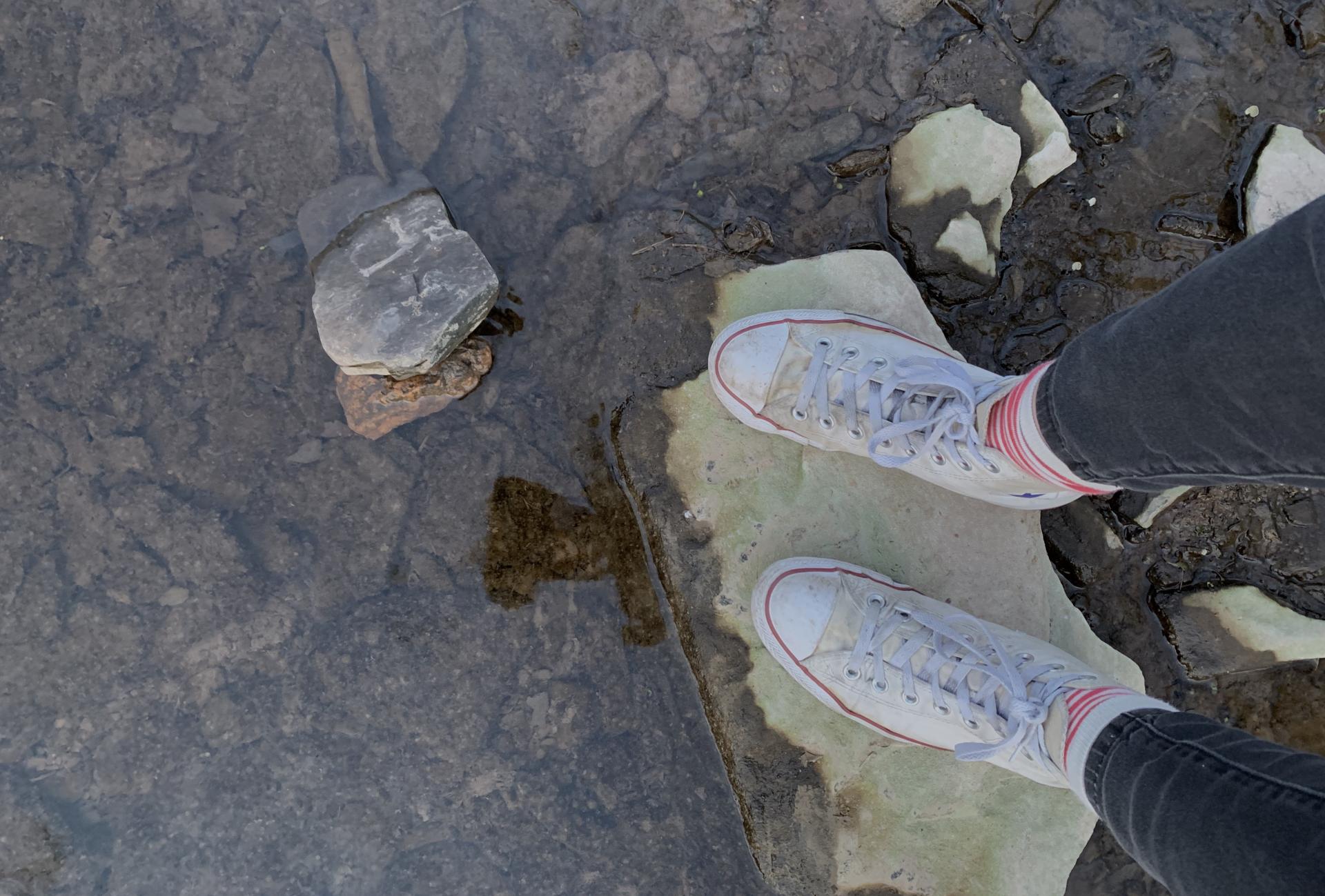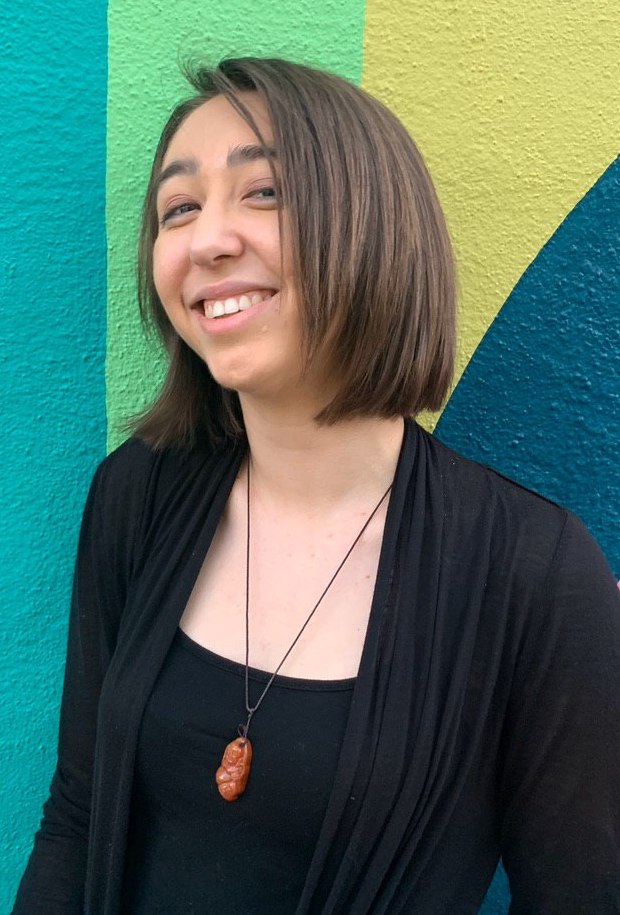COVID-19 has led to the cancellation of countless internships, travel plans, summer jobs, music concerts and festivals, graduations, conferences, you name it. Fixed deadlines have become fluid, and both short-term and long-term goals are presently at the mercy of something far beyond our control. In the face of a global pandemic, we may find ourselves wondering, “Why bother planning for anything anyway?" Yet this very mindset is the crux of the coronavirus procrastination problem, says CHARDONNAY NEEDLER.
1:15 a.m. Thirty minutes ago, I'd promised myself to start working on my already-due homework assignment, or at least begin writing my final essays. The end of the semester is rapidly approaching and I'm aware my professors cannot be extending deadlines indefinitely.
Once I’m done with my essays, I tell myself, I can start doing things I actually want to do. The saying, “A journey of a thousand miles begins with a single step," springs to mind.
![]()
But that quote prompts me to look up its source. Turns out the person behind it is Lao Tzu, not Confucius. The Chinese translation, which reads 千里之行始于足下 (Qiānlǐ zhī xíng shǐ yú zúxià), reminds me of a Jay Chou song, which then leads me to Google its lyrics. Let me sing it a few times for character recognition practice, I decide.
By the time I'm done watching music videos, reading Foreign Policy articles, staring at my white wall, and making trips to the kitchen for snacks or drinks, I'm exhausted. I also become painfully aware that I have a 9 a.m. lecture the next morning.
Taking care of oneself is pertinent to staving off possible pandemic-related infections, I've read. In these fragile times, I shouldn't be neglecting self-care (including rest). I should get to bed.
My assignment and essays will just have to wait.
9:15 a.m. A little less than eight hours ago, I'd resolved to complete my overdue assignment, and to get a headstart on my essays whose deadlines are looming.
Not only have I achieved neither, I've just slept through the first 15 minutes of class.
![]()
Looking through my social media feeds, it's clear that some people have indeed taken advantage of the quarantine to make positive lifestyle adjustments, such as exercising more, catching up on reading, or taking online courses. Yet I also wonder how many others, like me, have been spending their newfound time scrolling rather than strolling.
Consider this my #COVIDConfession: I am procrastinating way more now than ever before. These days, despite having nothing outside of classwork to do, nor anyone to see, I am getting much less done.
This is a stark contrast to my pre-COVID life, when my schedule was packed with extracurricular activities, and I was juggling various social and academic responsibilities. Back then, days and weeks seemed to vanish in the blink of an eye, and I was constantly bemoaning the little time I had to pursue personal projects. If I just had more time, I believed, I'd be learning Arabic, perfecting that Chopin cello sonata in G Minor, tinkering around in the kitchen, reading more Philip K. Dick and Émile Zola novels, and so on.
Fast forward to today, when I have nothing but time on my side, it's interesting to see how I still haven't embarked on a single passion project. Why am I not as motivated as before?

Image courtesy of the author.
In a TEDTalk by “master procrastinator” Tim Urban, we learn that within our brains lie the rational decision-maker—the prefrontal cortex—and the limbic system, which he anthropomorphised as a monkey. Sometimes, when that monkey hijacks the cerebral cockpit, it chases after instant gratification: dopamine and other chemicals.
In the COVID-19 era of social distancing, we have become disconnected from the many social systems that used to fill us with serotonin and dopamine. Without friend circles, significant others, social events, sports teams, music groups and clubs, we are now turning to things that offer us temporary pleasure.
Moreover, when many of our “love languages”—words of affirmation, gift-giving, service to others, quality time and physical touch—are taken away from us, we're no longer able to receive the same gratification, admiration and encouragement from external figures as before the pandemic.
With little reward for working hard, a dopamine vacuum, and an overly eager "monkey" craving normalcy and happiness, it's the perfect recipe for procrastination. No wonder it's so tempting to cuddle up to our pillows and say, Bon nap-étit!
![]()
Nobody can say for sure how much longer COVID-19 will stick around, or who will remain in our lives when this is all over. My good friend's professor recently passed away from the coronavirus infection, but that same friend is still working on his final essay for that class—for a professor who will not grade it. However, what we do know, is that we have aspirations that will outlive the pandemic.
Enter productive procrastination, which refers to using one’s natural desire to post-date tedious tasks to expedite the process for other productive work. For instance, putting off writing essays by applying for internships. In a similar way, we can regard our coronavirus procrastination problem as an opportunity to redefine career goals, rethink relationships, relook personal philosophies, and re-explore passions.
![]()
With that said, I invite us all to stop all this procrastinating and restart our engines.
Remember: a journey of a thousand miles begins with a single step. Likewise, the journey of a thousand new #COVIDprojects starts with a single mindset.
All images via rawpixel unless otherwise stated.
 |
Chardonnay Needler is a rising sophomore at the University of Pennsylvania College of Arts and Sciences, likely majoring in International Relations and Chinese. She is an editorial team member of Social Space's Overseas Student Committee, and contributing remotely from her home in Sacramento, California. In her spare time, Chardonnay enjoys singing, playing the cello and learning new languages. She hopes that by crafting engaging content, she can stir up new dialogue, bring new perspectives to modern-day issues and be one of the many catalysts for social change. She can be reached at cneedler@sas.upenn.edu |








Comments